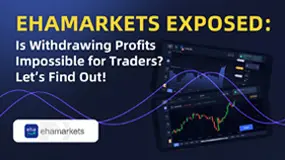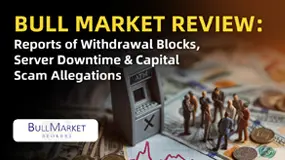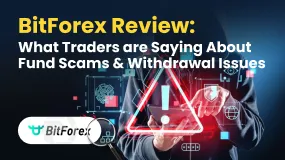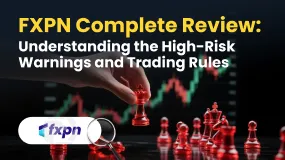Abstract:On August 15, the N980/US$ exchange rate was on the rise. The CBN would take action to stop speculating in the middle of the day. Not economists, but FX traders, went into a panic over that. The exchange rate on Broad Street decreased to N760-790/US$ the following morning.

On August 15, the N980/US$ exchange rate was on the rise. The CBN would take action to stop speculating in the middle of the day. Not economists, but FX traders, went into a panic over that. The exchange rate on Broad Street decreased to N760-790/US$ the following morning. One of my colleagues wanted to exchange some cash and inquired if I should sell it or not. He was concerned that the rates would drop much further due to the rapid dip. I instructed him to keep his money. He enquired, “Why?” I advised him not to trust the Central Bank of Nigeria (CBN) because none of the factors affecting currency rates suggest that they would have had access to enough dollars to have.
Since the 1980s, I have been using my own model to anticipate the direction of exchange rates. Only once, during the 1990s US-Iraq first conflict, were any of my predictions for any given year incorrect. But that was because there was no time to fully estimate the conflict's economic effects because it started unexpectedly and ended. People were foolish who sold a lot of money out of panic. I had no doubts about it at all.
INTERVENTION VIA NNPCL: FAIL GIMMICK
In order to stabilize the currency rate, the Nigerian National Petroleum Company Limited, or NNPCL, had obtained a $3 billion loan from the Afrexim Bank. Was this joking? Not at all funny. Undoubtedly, the FG and CBN were the ones who were in a panic, and they were responsible for spreading the disease's symptoms to the market.
The FG and CBN introduced a tried-and-failed ploy rather than acknowledging they have no idea how to avoid further currency devaluation. At first, the measures will be adopted to make speculators pay a steep price. Some people predicted, and the value of the naira rose briefly. However, the trend soon changed.
Under Emefiele, the abrupt intervention strategy was tested twice. The first occasion was when the official exchange rate was N250/US1, but the rate quickly accelerated to N400/US1. The second occurred when the price on the black market surpassed N700 to $1. Every time the CBN bluffed, the rates momentarily decreased. But each time I was asked for advice, I advised the person to disregard CBN and wait and see. Nothing more than what transpired after NNPCL had only acquired a $3 billion loan to stabilize the rates to support my argument. By the evening, the exchange rate had returned to N880/US$.
During this time, the CBN's illegal harassment of Bureau De Change employees pushed them to make a pledge that dollars would no longer be exchanged for N900. According to our culture's pidgin English proverb, “Corny man die; corny man bury am.” The BDCs are all too aware of the limited influence they have over currency rates set by the market. The direction that interest rates take will be determined by how supply and demand interact. They have relatively limited options for action. To convince the uninformed people that they were taking action to lower exchange rates, the FG is only using the BDCS as scapegoats.
WHY $3 BILLION WON'T FIX THE ISSUE
First lie: The NNPCL is not the entity in responsible of maintaining the exchange rate. The thing is the CBN. It was impossible for the Group Managing Director of the NNPCL to approach Afrexim Bank and ask for a $3 billion loan to be used to support the naira. Certainly not what the $3 billion was intended to do was stabilize the naira.
The $3 billion intervention may have been described as too little and too late if those promoting it as a solution had been upfront about it. They are not, though. The FG, CBN, and NNPCL are fully aware that $3 billion pales in comparison to both our actual needs and properly stabilize the naira.
In the upcoming three to six months, foreign airlines, producers, banks, parents, etc. will require more than $200 billion in foreign currency. If the $3 billion had been sold on the open market, it would have been gone in less time than an hour. Influx was not even intended for the market, as it turned out. The loan was taken out for personal use.
Finally, NNPCL will pay Afrexim Bank $3+i billion in the future after the $3 billion has been spent, with i being the interest on the loan. It is obvious that all they managed to do was slightly alter the patterns, and that cannot last. NNPCL will ultimately require extra money to pay back the debt.
THE ACTUAL CONCERN IS STILL UNSOLVED
The Tinubu government has prioritized distributing the wealth and adding more freeloaders—known as Ministers—to the national payroll over producing income to cover our expenses.
Our main source of monetary income is still the production, export, and sales of crude oil. Average crude production fell to its lowest level in more than nine years from June to August 2023. Granted, the price of petroleum has increased a little, but Nigeria's production decline has prevented the nation from benefiting from higher crude oil prices. Fuel costs also rise as a result of rising crude oil prices. Nigeria spends more on fuel imports than it does on crude exports. No amount of shock therapy, even the dubious $3 billion infusion, will stabilize the naira as long as that condition persists.
Additionally, a number of parastatals, including NPA, NCC, FAN, CBN, Customs, Immigration, EFCC, NDLEA, and others, as well as Ministries, generate a sizeable amount of foreign exchange earnings. I'm confident that the FG can increase revenue by roughly 15% by taking a straightforward, realistic approach. Otherwise, we would continue to struggle with naira stabilization.










